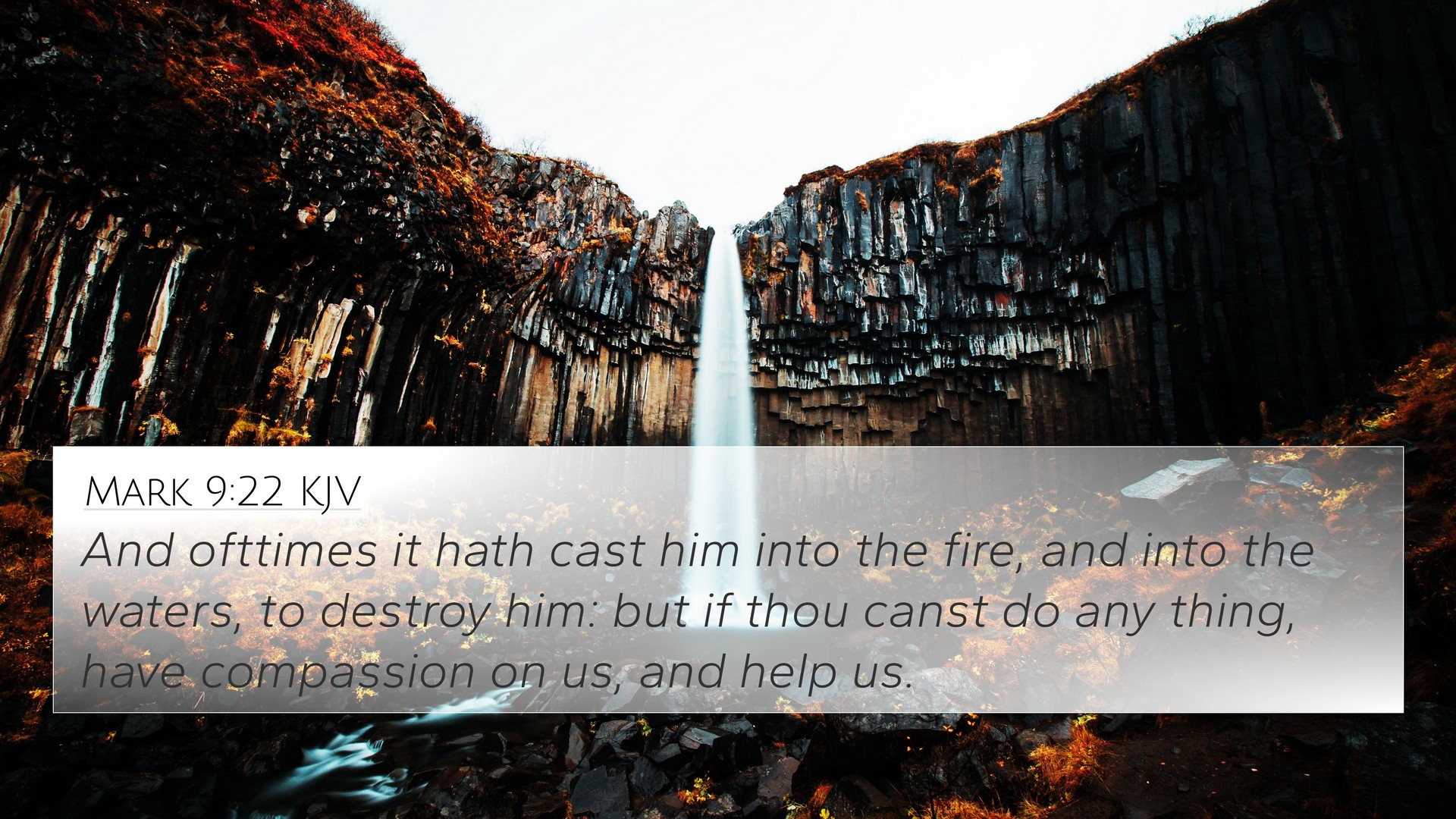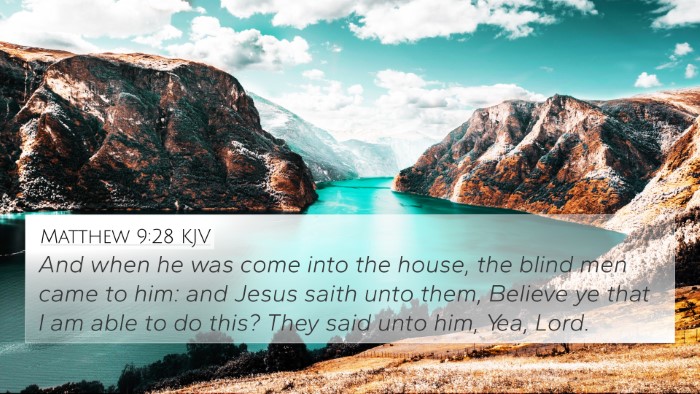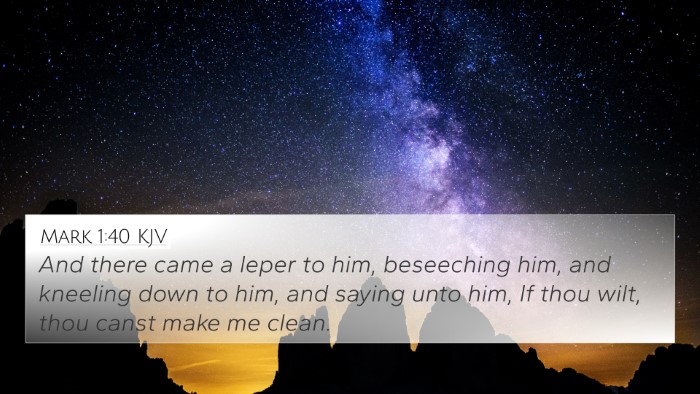Understanding Mark 9:22
Verse Reference: Mark 9:22
Text of the Verse: "And ofttimes it hath cast him into the fire, and into the waters, to destroy him: but if thou canst do any thing, have compassion on us, and help us."
Verse Meaning and Interpretation
This verse occurs in a poignant moment where a father pleads with Jesus for his possessed son. It highlights themes of desperation, faith, and the power of Christ’s compassion. Below is a summary of insights from notable public domain commentaries.
Matthew Henry's Commentary
Henry emphasizes the desperation of the father who has witnessed his son's suffering. The phrase "ofttimes" suggests a recurring experience of torment, indicating the depth of the suffering. This portrayal elicits sympathy from readers and sets the stage for Jesus’ miraculous intervention. Henry notes that the father’s plea reflects a mixture of hope and despair, demonstrating the human condition when faced with overwhelming challenges.
Albert Barnes' Commentary
Barnes focuses on the nature of faith expressed in the father's request. The plea "if thou canst do anything" reveals the father's uncertainty about Jesus’ ability to heal his son. This uncertainty resonates with many believers who may grapple with their faith during trials. Barnes also points out the importance of compassion, highlighting that the father seeks not just healing but also a deep sense of understanding and support.
Adam Clarke's Commentary
Clarke provides insight into the spiritual implications of the possession and the need for divine intervention. He discusses the significance of the father's acknowledgment of his limitation, as it showcases the necessity of turning to divine help when human means fail. Clarke also points out the sign of faith shown by the father, opting to come to Jesus instead of relying solely on traditional remedies.
Cross-References
Mark 9:22 connects with several other Bible verses that elaborate on themes of healing, suffering, and faith. Here are some important cross-references:
- Matthew 17:15 - Details a similar situation with a possessed boy.
- Luke 9:38-39 - Another account of the father's plea for his son.
- John 11:35 - "Jesus wept," highlighting Christ's compassion in suffering.
- Mark 5:36 - Jesus encourages faith amidst despair.
- James 1:6 - Discusses the importance of faith in receiving from God.
- Hebrews 11:1 - Defines faith as confidence in what we hope for.
- Psalm 34:18 - “The Lord is near to the brokenhearted,” emphasizing divine care.
Key Themes
The verse, along with its cross-references, highlights several core themes:
- Divine Compassion: The nature of Christ’s response to suffering.
- Desperation and Faith: The father’s struggle illustrates common human experiences.
- Power of Prayer: Seeking help through prayer is essential.
- Miraculous Healing: Jesus’ ability to heal emphasizes His divine authority.
Conclusion
Mark 9:22 serves as a profound reminder of the tensions between despair and faith. This passage, along with its connections to various biblical themes, encourages readers to explore the depths of their belief and the significance of seeking help from Christ. The father’s plea resonates with many today, reminding believers that compassion and divine assistance are central to the Christian faith.
Related Topics for Further Study
- How to find cross-references in the Bible: Utilizing a Bible concordance and cross-reference guide enhances our understanding of scriptural connections.
- Identifying connections between Old and New Testament: Exploring parallels, such as healing narratives, enriches our scriptural knowledge.
- Interpreting Biblical themes through cross-references: Examining various verses can illuminate overarching messages in scripture.











